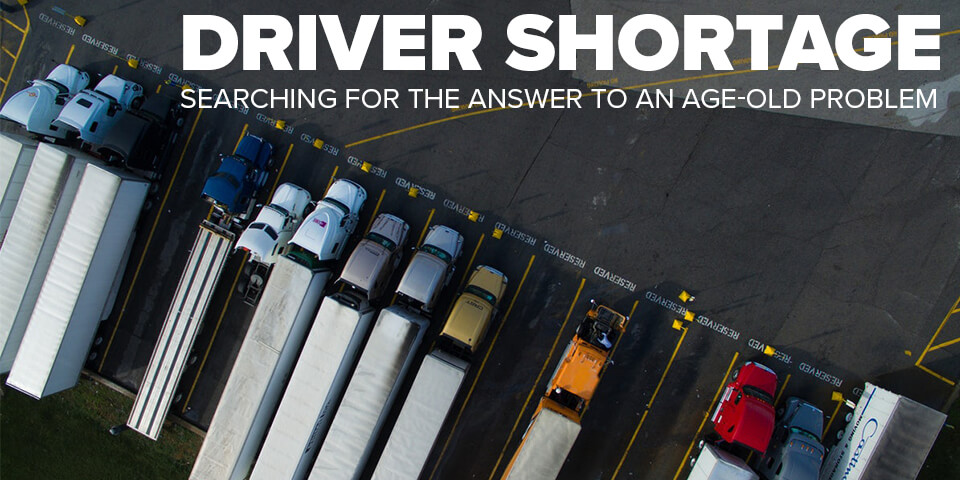
Driver Shortage: Searching for the answer to an age-old problem
Still mired in the COVID-19 pandemic, two years and counting, the transportation industry has undoubtedly seen its fair share of twists, turns, complaints and controversy. Just like the rest of us. However, one thing has remained the same: the on-going and perceived shortage of qualified drivers.
Driver shortage: Is there an answer?
Unlike Captain America, who was frozen and preserved in ice for almost 70 years, it's highly unlikely that we're going to find any long-forgotten heroes of trucking's past encased in an ice shelf and anticipating a thaw much like a TV dinner.
Nope. All signs point to the future of trucking having to depend on the youth of our time. And the ability to find able-minded and strong bodied young men and women who are not only willing to tackle the daily ups and downs of an industry that has evolved (some would argue devolved) into a heavily regulated entity, remains the padlocked door staring us in our collective faces.
So, what and where is the master key to unlocking this worsening quandary we've found ourselves in?
Recently, a proposed change to the federal regulation that over-the-road drivers must be twenty-one years or older has been discussed inside transportation circles. The idea being that the age limit of twenty-one should be dropped to eighteen in an effort to generate greater interest in truck driving, enticing a younger crowd to pursue a career behind the wheel.
Currently, eighteen- to twenty-year-old commercial driver's license holders cannot cross state lines. But a pilot program through the Federal Motor Carrier Safety Administration (FMCSA) is currently looking at the risks of allowing truckers under 21 to do exactly that.
The program is looking to recruit eighteen- to twenty-year-old drivers who already hold a commercial license to complete a probationary period, plus nineteen- and twenty-year-olds who have at least one year of intrastate driving experience with 25,000 miles under their belts.
There also exists already proposed legislation in Congress, what is known as the DRIVE-Safe Act, that aims at dropping the legal age of driving a commercial vehicle across state lines from twenty-one to eighteen.
Is it safe?
Trucking companies across the board have stated that they want to recruit younger drivers in hopes of lowering driver turnover in an industry that is well-known for such churn. It would certainly be advantageous to add new blood to an aging driver pool. But is the juice worth the squeeze if we're doing so at the risk of increased accidents on America's highways?
Studies by the Centers for Disease Control (CDC) have shown that teen drivers are more likely to be involved in accidents on the road. Most reasons cited have included distractions, inexperience, and an increased propensity for speeding. These are also concerns that most insurance companies are keenly aware of, as well.
Is there another option?
Other arguments regarding the much-hyped driver shortage have been tirelessly made in support of improving driver working conditions, higher rate of pay and simply showing greater appreciation for the work our drivers perform day-in and day-out.
Perhaps better organizational treatment of our already established cadre of over the-road heroes would be easier to swallow, rather than tempting the fate of increased driving dangers by allowing those who are inexperienced to take risks in the name of lessening turnover.
Is there really an easy answer to this? I guess it depends on which camp you're pitching your tent in.
As it currently stands, the DRIVE-Safe Act has yet to be passed by Congress. However, as we've all grown accustomed to, standing-by and waiting for the next shoe to drop is all we can do in the meantime.
